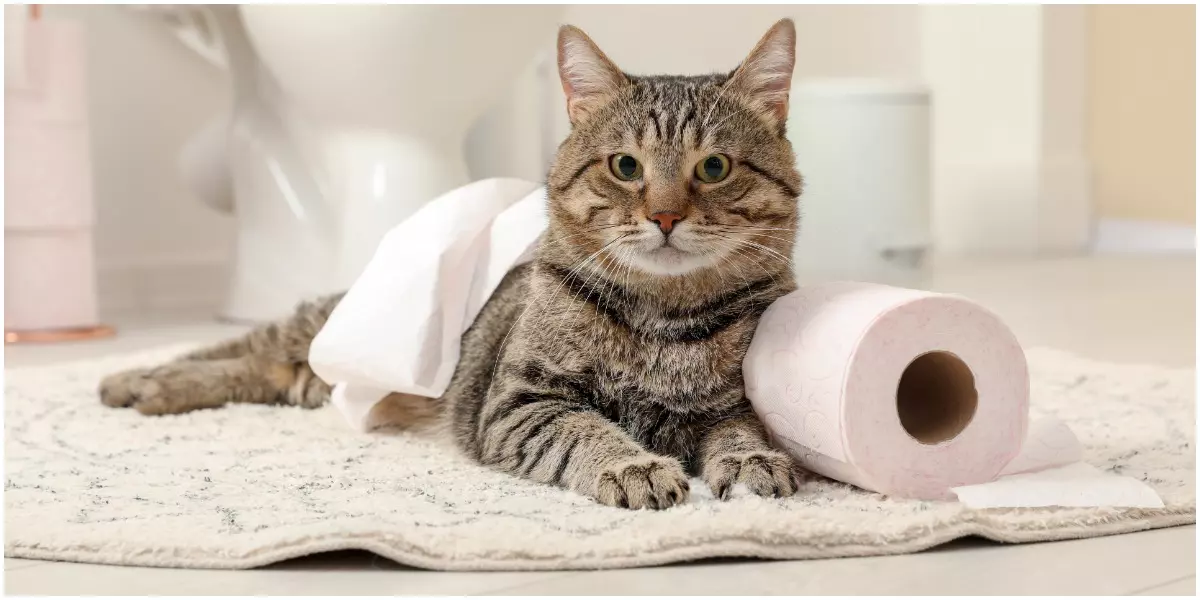Diarrhea in cats is a common yet distressing issue that can significantly impact their health. Understanding the influence of diet in managing this condition is crucial for cat owners. This article delves into the best cat food options to help manage diarrhea, alongside essential dietary considerations.
Understanding Diarrhea in Cats
- Common Causes: Diarrhea in cats can result from various factors, including dietary changes, food intolerances, infections, parasites, and chronic conditions like inflammatory bowel disease.
- Symptoms and Risks: Besides the obvious loose stools, symptoms can include increased frequency of defecation, urgency, and changes in stool color. Prolonged diarrhea can lead to dehydration and nutrient deficiencies, making prompt management vital.
Nutritional Considerations for Diarrhea Management
- Easily Digestible Ingredients: Foods that are easy to digest can help soothe a cat’s upset digestive system. Look for high-quality animal proteins, simple carbohydrates, and easily absorbed fats.
- Fiber Content: Both soluble (such as inulin) and insoluble fibers (like cellulose) play different roles in digestive health. Soluble fiber can help absorb water and firm up stools, while insoluble fiber aids bowel regularity.
- Probiotics and Prebiotics: The inclusion of these beneficial bacteria in cat food can support a healthy gut flora, which is key in resolving and preventing diarrhea.
Top Cat Food Brands for Diarrhea Management
- Hill’s Prescription Diet i/d Digestive Care: Specifically formulated for cats with digestive health problems.
- Pros: Clinically proven to resolve diarrhea in as little as three days.
- Cons: Requires a veterinary prescription.
- Price: Around $50 for an 8.5-lb bag.
- Availability: Veterinary clinics and some online retailers.
- Royal Canin Gastrointestinal Moderate Calorie: Ideal for cats prone to weight gain alongside diarrhea.
- Pros: Balanced fiber blend, easily digestible proteins.
- Cons: Prescription required, slightly higher price point.
- Price: Approximately $45 for a 7.7-lb bag.
- Availability: Veterinary clinics and select pet stores.
- Purina Pro Plan Veterinary Diets EN Gastroenteric: Formulated to minimize allergic reactions and aid digestion.
- Pros: Contains prebiotic fiber to support gut health.
- Cons: Prescription required, contains corn and wheat.
- Price: About $40 for a 6-lb bag.
- Availability: Veterinary clinics and online retailers.
- Blue Buffalo Natural Veterinary Diet GI Gastrointestinal Support: A natural option for digestive care.
- Pros: Made with easily digestible ingredients and contains prebiotics.
- Cons: Requires a prescription, maybe less palatable for some cats.
- Price: Around $45 for a 7-lb bag.
- Availability: Select veterinary clinics and online.
- Iams Proactive Health Sensitive Stomach: Non-prescription option, suitable for mild cases of diarrhea.
- Pros: Contains a blend of fibers and prebiotics.
- Cons: May not be suitable for severe cases.
- Price: Approximately $20 for a 7-lb bag.
- Availability: Widely available in pet stores and online.
Feeding Strategies for Cats with Diarrhea
- Transitioning to a New Diet: Introduce any new food gradually over 7-10 days to avoid exacerbating diarrhea.
- Hydration: Ensure your cat has constant access to fresh water, as diarrhea can cause dehydration.
Additional Tips for Managing Diarrhea
- Veterinary Consultation: Always consult a vet to identify the underlying cause of diarrhea and the best dietary approach.
- Home Care Tips: Keep your cat’s litter box clean and monitor its overall health and behavior for signs of improvement or worsening of the condition.
FAQs About Cat Food for Diarrhea
- How long should I feed my cat a special diet for diarrhea? Continue the special diet as advised by your vet, often until symptoms resolve and a little while after.
- Can I give my cat over-the-counter medications for diarrhea? Consult your vet before giving any medications, as some human medications can be toxic to cats.
- What home remedies can I try for cat diarrhea? Simple dietary adjustments like offering boiled chicken and rice can help, but they should not replace veterinary advice.
- Should I worry about occasional diarrhea? Occasional mild diarrhea may not be a concern, but consistent or severe symptoms warrant veterinary attention.
- Can stress cause diarrhea in cats? Yes, stress can disrupt a cat’s digestive system, leading to diarrhea.
Conclusion
Selecting the right cat food is a key element in managing diarrhea in cats. Understanding the dietary needs and transitioning to a specially formulated diet can significantly aid in resolving digestive issues. Remember, consulting a veterinarian is crucial to ensure the health and well-being of your feline companion.

Jane Doe, a veterinarian with over 10 years of experience, combines her deep knowledge of animal health with a passion for pet welfare at PetsPonder.com. With a DVM degree and a commitment to the latest in veterinary science, Jane Doe offers reliable, compassionate advice to help pet owners make informed decisions for their furry companions.

Leave a Reply